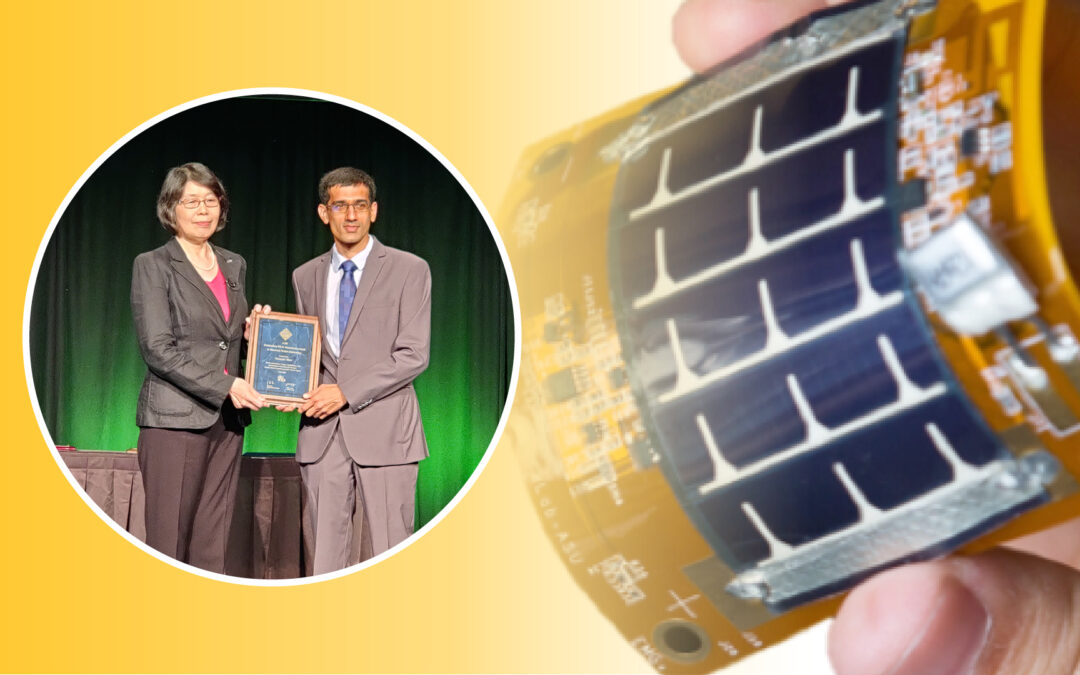During his time as a doctoral student at the School of Electrical, Computer and Energy Engineering, one of the seven Ira A. Fulton Schools of Engineering at Arizona State University, Ganapati Bhat envisioned a device that could change the lives of patients with movement disorders. His wearable medical device could replace the need to capture parameters for bodily movement functions used by physicians in a clinical setting.
The technology can help track patients’ movements while they are going about their daily lives to give scientifically accurate measurements. Bhat decided to write his doctoral dissertation on this idea with help from his thesis advisor, Umit Ogras, a former Fulton Schools faculty member who is now an associate professor of electrical and computer engineering at the University of Wisconsin-Madison. This 2020 dissertation, “Design, Optimization, and Applications of Wearable IoT Devices,” won Bhat the 2022 Association for Computing Machinery’s Special Interest Design Group on Automation Outstanding Dissertation Award, which he accepted in a ceremony on July 13.
The judging committee, made up of industry and academic engineering experts, gives the award to a dissertation they believe represents the greatest contribution to the field of electronic design automation. Electronic design automation describes the tools and processes used to devise plans for systems such as semiconductors.
“My goal was always to make an impact on the daily lives of people in a positive way,” Bhat says. “As we started reading about the growing incidence of chronic diseases coupled with aging, we thought that wearable devices could make a huge difference.”
